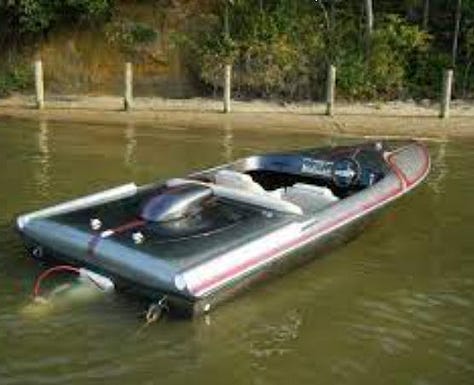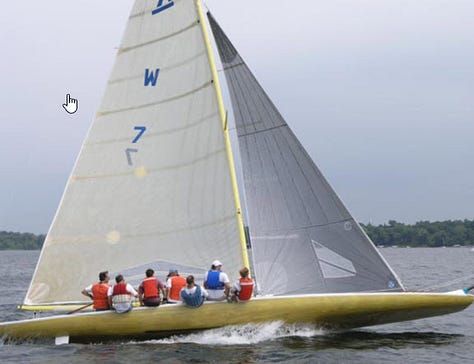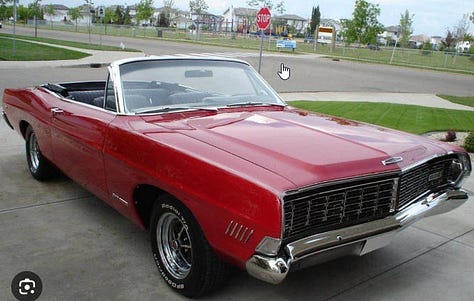Post Introduction:
When I complete a Substack post, I go to my newsfeeds to search for the next topic of interest. As my readers and subscribers have come to expect, my topics vary widely from business and politics to religion and philosophy. If the topic captures my imagination enough to warrant 1500 words, I develop it into a future post. Recently, I stumbled upon an article talking about the "suicide belt" of the American Rocky Mountains. Specifically, the article described how suicide rates had quadrupled in America's mountain towns. My research on this topic led me to a recent documentary titled, The Paradise Paradox produced by Podium Pictures and Hall of Fame skier Bode Miller. It is available on Amazon Prime for a nominal fee.
As a lifelong, visitor to many of those resort towns in the "suicide belt" and a recovering alcoholic, I relate to the mental health struggles that many in America's resort towns experience. I feel compelled to share my recovery journey, not because it is ever pleasant recounting the low dark crevices of my past, but in the hopes that my story may help someone who is struggling with depression, anxiety or addiction find hope and recovery. My work on this topic will span multiple posts. If you connect with any part of my story, please sign up for a free or paid subscription. Moreover, if my story compels you into further action, consider donating to one of the mountain town organizations working to expand mental health services and stem the tide of suicides.
I grew up in the northern Minnesota resort town of Detroit Lakes. My high school and college years spanned the decade of the 1980s. In the 80s, Detroit Lakes in the summer was known as a party town. In the winter, it was a quiet little burg of about 8000 people. But in the summertime, with 412 Lakes within a 30-mile radius, the population swelled to over 25,000 as resorters and summer home residents descended upon my northern Minnesota vacation town. When I say my town had a reputation for having a good time, it is no mere understatement. In 1984, Playboy magazine rated Detroit Lakes the best place to pick up women on the 4th of July. To put my resort town life into proper perspective, 1984 was the year I graduated from high school.
Now, when people ask me what it was like to grow up in Detroit Lakes? I simply tell them, "I had a jet boat, a sailboat, a cherry red convertible, and a drinking problem – It was a blast!"



And that's what it truly was. If I wasn't working hard in one of my father's restaurants, I was playing hard on one of the area lakes. If the winds were up, my buddies and I would push the boundaries of physics and wood construction in my 1965 Johnson built sailing scow. If the lakes were calm, we pushed the physical boundaries of our bodies waterskiing and bearfooting behind a jet boat, that I kid you not, consumed about 20 gallons of gasoline per hour. And whatever I and my friends were doing, whether it was closing down a restaurant at night, sailing or waterskiing, there was always alcohol involved. That seemed to be the norm in the world I grew up in. My life truly was like the 1974 compilation album by the Beach boys titled "Endless Summer." It was a series of short catchy little tunes reminiscent of beaches, girls, cars, and frivolous alcoholic fun. Back then, I took life as it came, neat with a chaser - no aftertaste and no hangovers.
The '80s also saw an economic boom as the US economy climbed out of the high inflation and recession rattled decade of the '70s. Here is where my story begins to parallel with what some individuals may be experiencing today in Mountain resort towns. Because, as economic conditions improved during the Reagan years, what were once simple lake cabin homes about my hometown, that were easily affordable to middle class families, were being snatched up at a rapid pace, razed, and replaced with grand summer lake homes. And with these new lake homes with tennis courts and swimming pools came wealthy families with privileged children. Whereas my buddies and I had to work to pay for our fun, these new residents did not. What made matters worse, since I was in the restaurant business, is that I had to serve these snobby, never worked a day in their lives, brats, and be all nice about it.
But like a lot of vacation hotspots, the haves and the have-nots end up partying in the same places. We got to know the summer residence, hang out with them at their parents' beach homes, and take pride in the fact that coming from wealth did not make one a better water skier.
Though daddy's money bought Mastercraft and Ski Nautiques and thousand dollar padded wetsuits, the prodigies of privilege could not match the skills of hometown boys cutting sharp slalom lines and bearfooting in cut off shorts behind a 10-year-old brown sparkly boat. We learned early on that money could not buy expertise. We, as residents who grew up waterskiing nearly every day in the summer, owned the lake. By the time we were in our early twenties, we were top notch skiers and were not shy about showing it off. The fancy boat owning, decked out vacation dwellers could not hold a paddle to our water sport skills.
But at the same time, I did learn what money could buy. Whereas I worked 12-hour days, sweating over a hot grill on a ninety-degree summer day to earn money for my college tuition, my wealthy friends lounged by their pools sipping Mai Tais and listening to Jimmy Buffet. Money bought them access to college without incurring student loan debt. Back in the 80s, money also bought the well healed out of trouble. Stories of children of wealthy lake dwellers getting off alcohol related offenses scott free were all too common in my upbringing. For in those days in Detroit Lakes, the bars were plentiful, wet T-shirt contests occurred every weekend and cover charge bands played until 1 AM. In the pre-Mothers Against Drunk Driving (MADD) law enforcement initiatives, taking to the roads after the bars closed in my hometown was a risky adventure. I still cringe thinking about it to this day and wonder how I ever survived my youthful driving days in Detroit Lakes. I guess the saying attributed to Otto von Bismarck is true, “God has a special providence for fools, drunkards, and the United States of America.” And in the 1980’s I represented all three of those positions.
But there was another part of wealth that I witnessed growing up in my resort town. A part of wealth not splashed in newspapers or available to the masses to witness in the pre-post everything on social media era of the 80s. And this was the part about how these new wealthy interlopers acted when gathered at their own parties. Since my job back then was to run the food service at the local country club, I got to see how the well-off acted on the golf course during the day. Through that club, I also catered their private events at their Lake homes at night. I witnessed prominent individuals, people who had important day jobs, in their vacation-mode habitat. Not only were the drinks flowing amongst this crowd of financial elites, but lines of cocaine were cut, and marital fidelity was naught. I gained two perspectives from this time, one was that wealthy people do indeed bleed and number two, Jesus was correct in stating that, “It is easier for a camel to go through the eye of a needle than for a rich man to enter the kingdom of God.”
It was during this time, in my late teens and early twenties, that I started to gain perspective of wealth. Part of me longed for the carefree lifestyle of the wealthy. Back then I was, as I am now, someone who must work for the luxuries and leisure I enjoy. But I always dreamed of what it would be like to enjoy those two things without the work. As I discussed in previous installments of this series on suicide and addiction, the restless discontent of my nature always had me seeking the locations where the wealth and privileged played. And whether that was on the beaches of my hometown in Detroit Lakes or in the mountain resort towns from New Mexico to Montana, I ever believed my happiness was tied to a location. It will take a few more installments in this series before I learned that happiness comes from within.
As we journey together on my “grass is always greener” fantasy, my next post will cover my J-term adventures skiing the Rocky Mountains on my way home from a month “studying” in Phoenix, Arizona. On that trip, I combined a 1968 Ford XL convertible, golf clubs, ski gear and scotch on a whirlwind 10-day January adventure home. Here is a hint, that trip did nothing to quench my thirst for exploring the restless discontent of my heart that would further develop into a full-blown case of “Anyplace But Here Syndrome.”

